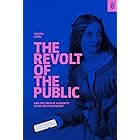| Digital List Price: | $17.95 |
| Kindle Price: | $9.99 Save $7.96 (44%) |
| Sold by: | Amazon.com Services LLC |
Your Memberships & Subscriptions

Download the free Kindle app and start reading Kindle books instantly on your smartphone, tablet, or computer - no Kindle device required.
Read instantly on your browser with Kindle for Web.
Using your mobile phone camera - scan the code below and download the Kindle app.

OK
Duino Elegies (Bilingual Edition) Bilingual Edition, Kindle Edition
One of the literary masterpieces of the century, this translation is now presented with facing-page German.
We have a marvelous, almost legendary, image of the circumstances in which the composition of this great poem began. Rilke was staying at a castle (Duino) on the sea near Trieste. One morning he walked out on the battlements and climbed down to where the rocks dropped sharply to the sea. From out of the wind, which was blowing with great force, Rilke seemed to hear a voice: Wer, wenn ich schriee, horte mich denn aus der Engel Ordnungen? (If I cried out, who would hear me up there, among the angelic orders?). He wrote these words, the opening of the first Duino Elegy, in his notebook, then went inside to continue what was to be his major work and one of the literary masterpieces of the century.
- ISBN-13978-0393328844
- EditionBilingual
- PublisherW. W. Norton & Company
- Publication dateJune 17, 2006
- LanguageEnglish
- File size1506 KB
Customers who bought this item also bought
Editorial Reviews
From the Back Cover
About the Author
Product details
- ASIN : B00K3F5BQK
- Publisher : W. W. Norton & Company; Bilingual edition (June 17, 2006)
- Publication date : June 17, 2006
- Language : English
- File size : 1506 KB
- Text-to-Speech : Enabled
- Screen Reader : Supported
- Enhanced typesetting : Enabled
- X-Ray : Not Enabled
- Word Wise : Not Enabled
- Sticky notes : On Kindle Scribe
- Print length : 203 pages
- Best Sellers Rank: #2,103,244 in Kindle Store (See Top 100 in Kindle Store)
- #776 in German Poetry (Books)
- #817 in German Literature (Books)
- #887 in European Poetry (Kindle Store)
- Customer Reviews:
About the authors

Discover more of the author’s books, see similar authors, read author blogs and more

Discover more of the author’s books, see similar authors, read author blogs and more
Customer reviews
Customer Reviews, including Product Star Ratings help customers to learn more about the product and decide whether it is the right product for them.
To calculate the overall star rating and percentage breakdown by star, we don’t use a simple average. Instead, our system considers things like how recent a review is and if the reviewer bought the item on Amazon. It also analyzed reviews to verify trustworthiness.
Learn more how customers reviews work on Amazon-
Top reviews










